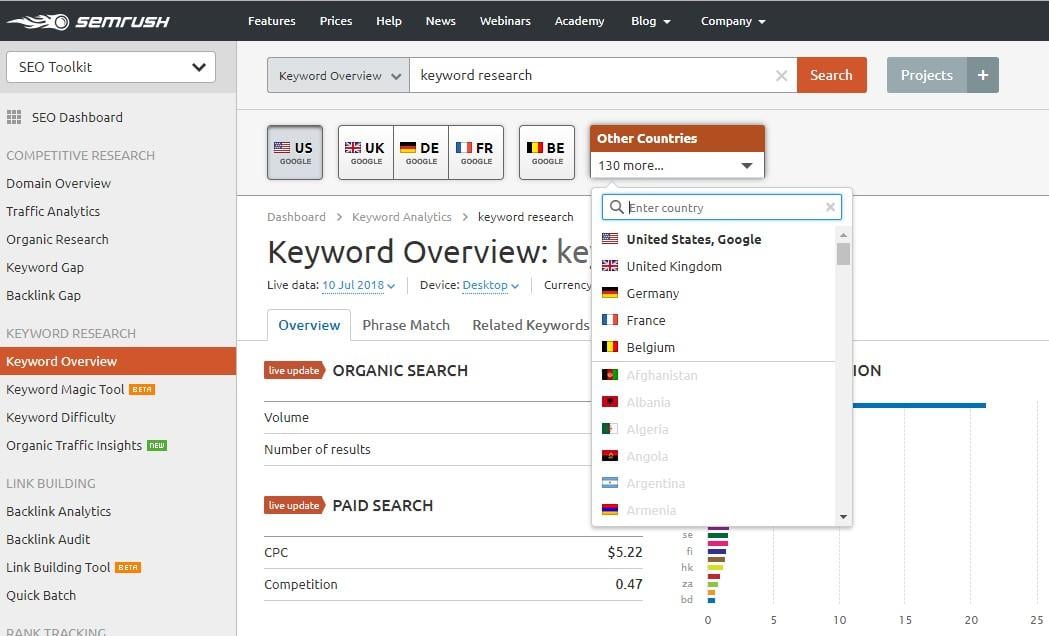Breaking Boundaries: International SEO Strategies for International Supremacy
Breaking Boundaries: International SEO Strategies for International Supremacy
Blog Article
Navigating the Digital Landscape: Leveraging International SEO for Cross-Border Success
In today's interconnected electronic globe, businesses are significantly looking past boundaries to touch right into global markets. The complexity of navigating the digital landscape on an international range requires a nuanced strategy, from recognizing the fundamentals of International Search engine optimization to carrying out geotargeting and multilingual key words approaches.
Understanding International SEO Principles
Navigating the intricacies of international SEO needs a strong grasp of fundamental principles to efficiently increase online visibility throughout borders. One essential element of international search engine optimization is comprehending the importance of localization. This entails tailoring internet site content to match the linguistic, cultural, and industrial differences of target markets. Keyword phrases should be not just equated however additionally adapted to mirror exactly how individuals in various regions search for info.
In addition, having a clear understanding of geo-targeting is essential. This involves indicating to online search engine the specific nations or areas a website is targeting. Carrying out hreflang tags is one means to communicate this information, making certain that the proper variation of a web page appears in the search results page for a customer in a specific location.
Additionally, comprehending the impact of neighborhood internet search engine and social media sites systems is vital for international SEO success. As an example, while Google is leading in several areas, nations like China have their own search engines like Baidu, requiring customized approaches for each and every platform to optimize on-line exposure.

Targeting Multilingual Key Phrase Strategies
Creating multilingual key words techniques is essential for efficiently reaching varied global target markets and optimizing on the internet presence across different etymological areas. When targeting multilingual keyword phrase approaches, it is crucial to perform comprehensive research to comprehend the specific search terms and expressions utilized by the target market in each etymological region. This includes not only translating keyword phrases however also thinking about cultural subtleties, local languages, and search fads unique to each target audience.
To produce an effective multilingual key words method, it is vital to focus on significance and search intent. Keywords must line up with the web content on the internet site and reverberate with the social context of the target audience. Utilizing tools such as Google Search Phrase Coordinator, SEMrush, or Ahrefs can help determine high-performing keyword phrases in various languages and analyze their search volume and competitors level.
Additionally, surveillance and analyzing the performance of multilingual keyword phrases frequently is vital for enhancing and refining the technique in time. By continuously adjusting to adjustments in search behavior and patterns, organizations can improve their on-line exposure and attract more global website traffic to their websites.
Applying Geotargeting and Hreflang Tags
When aiming to boost worldwide search engine optimization methods, integrating geotargeting and hreflang tags is crucial for optimizing site exposure throughout various regions. Geotargeting involves customizing web content to specific locations, making certain that individuals in various areas get pertinent info. By implementing geotargeting, companies can boost their neighborhood search positions and bring in region-specific traffic.

Optimizing Web Site Structure for Global Exposure
To even more boost international SEO strategies past geotargeting and hreflang tags, enhancing the website framework is imperative for attaining international presence and maximizing reach across different areas. A well-structured website not only boosts user experience yet also promotes online search engine spiders in recognizing the content and context of the website. When intending for international visibility, it is important to make sure that the website is organized in informative post a rational fashion that accommodates individuals from various countries. Applying a clear pecking order with distinctive groups and subcategories can assist in boosting the site's navigation and user-friendliness.
Additionally, producing language-specific subdirectories or subdomains can aid browse engines deliver the right variation of the internet site to users based upon their language choices, even more improving the general user experience. Furthermore, maximizing link structures to consist of relevant keyword phrases and geotargeted terms can improve the site's presence in various regions. By structuring the website effectively for international audiences, businesses can increase their chances of attracting worldwide web traffic and broadening their reach across boundaries.

Monitoring and Evaluating Cross-Border Efficiency
Effective tracking and studying of cross-border efficiency is necessary for examining the success of global SEO techniques and recognizing chances for enhancement in worldwide reach and visibility. By very closely tracking crucial efficiency indicators (KPIs) across various markets, organizations can obtain important understandings into the effectiveness of their cross-border SEO initiatives. Monitoring metrics such as natural web traffic, keyword positions, conversion prices, and bounce prices can provide an extensive view of exactly how well a site is carrying out in numerous areas.
Evaluating cross-border efficiency information allows services to determine trends, patterns, and areas for optimization. By contrasting efficiency across different countries, regions, or languages, business can pinpoint effective approaches and localize web content to much better accommodate details target audiences. Furthermore, checking cross-border efficiency makes it possible for organizations to remain nimble and receptive in the ever-evolving electronic landscape. Normal analysis of SEO efficiency on a global range ensures that firms can adjust their methods rapidly to maximize emerging chances and maintain an affordable edge in international markets.
Conclusion
Finally, international search engine optimization plays an important function in accomplishing cross-border success by optimizing sites for global presence, targeting multilingual key phrase techniques, executing geotargeting and hreflang tags, and keeping track of cross-border efficiency. By understanding the basics imp source of international SEO and enhancing this content site structures accordingly, organizations can effectively reach and engage with their target audiences throughout different areas and languages. This calculated approach is crucial for expanding market reach and driving on the internet growth in today's digital landscape.
Report this page